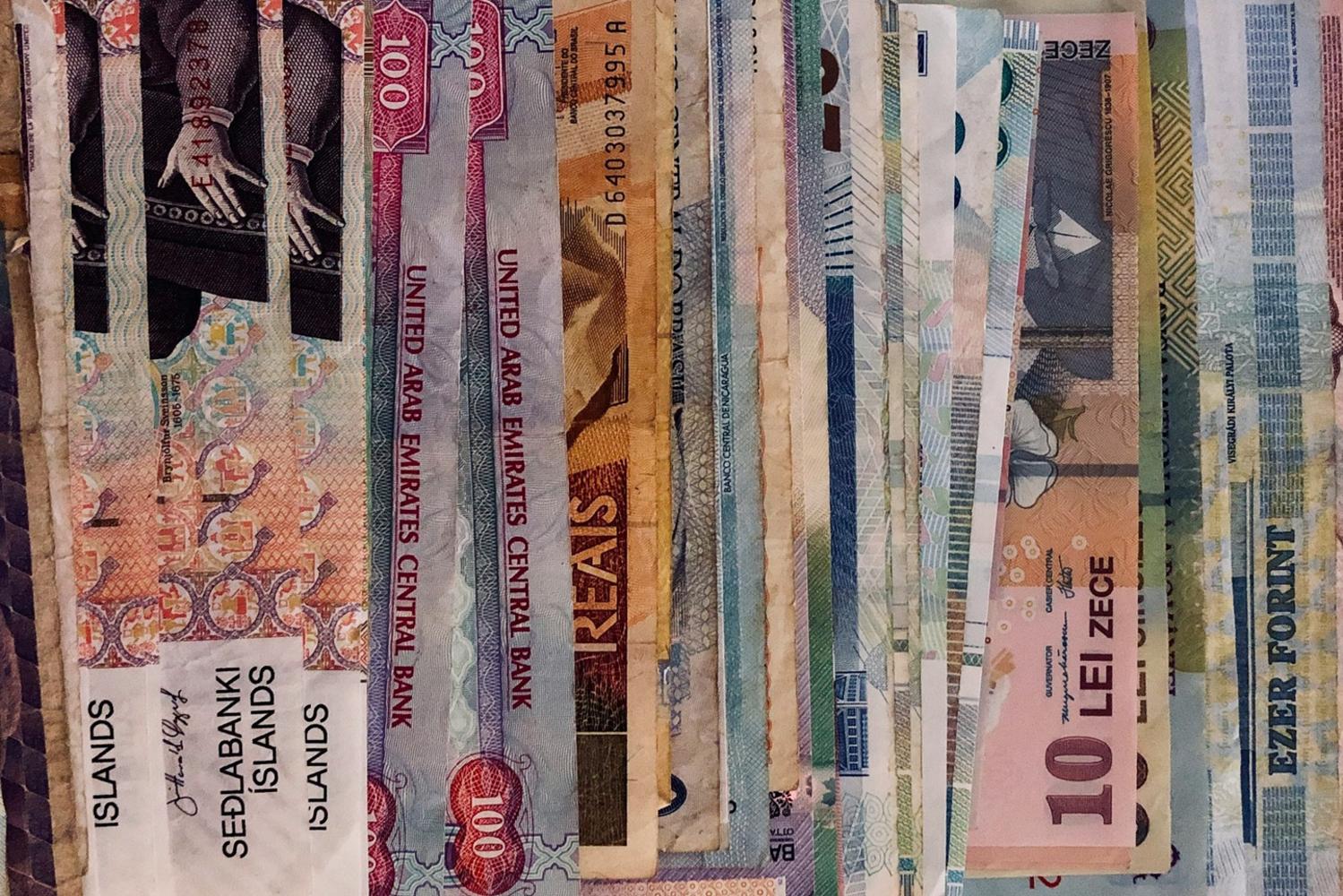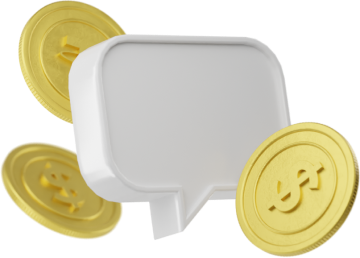How to Send Money to the UAE
Several ways to transfer money to the UAE from anywhere in the world

In this guide, we’ll walk you through all the legal and practical ways to send money to the UAE and explain the best method for large transfers with minimal risk and delay.
Are you planning to buy real estate, a car, or luxury goods in the UAE? Maybe you’re traveling to Dubai or Abu Dhabi and need access to cash, or you’re running a business and need to pay invoices from UAE-based companies. With 1tab, you can send funds quickly and securely, and even receive cash in Dubai or Abu Dhabi, including via courier delivery. Please leave a request to learn more about the details.
For What Purposes Can I Send Money to the UAE?
People send money to the UAE for many reasons. Here are the most common ones:
real estate purchases: apartments, villas, or commercial property in Dubai, Abu Dhabi, or Ras Al Khaimah;
investments into local businesses, startups, or financial assets;
car purchases, including luxury vehicles bought from the UAE’s large auto market;
crypto operations: buying, selling, or converting crypto to fiat inside the UAE;
transfers to relatives or friends for living expenses or support;
business payments: settling invoices, salaries, or supplier contracts in AED or USD.
From Which Countries Can I Send Money to the UAE?
You can legally transfer money to the UAE from most countries. This includes:
EU countries: Germany, France, Spain, Italy, the Netherlands, etc. These countries allow free and legal transfers via banks and online platforms, such as Wise, Revolut, or Western Union.
In the USA and Canada, both individuals and businesses can send payments freely using services such as OFX, Xoom, or traditional bank wires.
Russia and CIS countries: Transfers are more complex due to sanctions and currency controls, but they are still possible through alternative solutions, such as cryptocurrency, OTC platforms, or peer-to-peer services.
Other countries, primarily located in Asia, Africa, Latin America, and Oceania, also permit transfers to the UAE — although local regulations, banking infrastructure, and international sanctions may impact availability. For example, countries such as Brazil, South Africa, India, and Australia typically support transfers through banks or online services. Some African and Caribbean nations (e.g., Somalia, Cuba, Haiti) may require additional documentation or the use of alternative channels.
Each country may have different restrictions, currency regulations, or processing times, so it’s essential to choose a suitable method. Bank transfers are reliable, but they may be slower and more expensive, while online services offer faster and more cost-effective options. Crypto-based transfers offer flexibility but require caution and compliance with local laws.
Which Documents Do I Need to Transfer Money to the UAE?
You typically need minimal documentation for personal transfers:
a valid passport or Emirates ID to confirm your identity;
recipient’s bank details, including IBAN and SWIFT/BIC codes for UAE bank accounts.
For larger transfers or business-related payments, additional documents may be requested:
A contract or invoice: a property sale agreement or supplier invoice to explain the payment purpose;
Proof of the source of funds: bank statements, invoices, or crypto transaction records to comply with UAE Anti-Money Laundering (AML) requirements. UAE regulators require institutions to collect such information, especially for transactions exceeding AED 3,500 or AED 55,000, depending on the risk level.
UAE banks and licensed money transfer providers must follow strict Customer Identification Procedures (CID), Customer Due Diligence (CDD), and even enhanced due diligence (EDD) depending on risk. They record key personal details, including name, passport or Emirates ID number, contact information, nationality, occupation, and retain these records for at least five years.
If you use a regulated over-the-counter service, such as 1tab, you will be provided with clear documentation during registration. We help simplify legal compliance by ensuring that your transfer is secure, legal, and accepted by UAE banks.
Ways to Send Money to the UAE
Card-to-Card Transfers
Card-to-card transfers are suitable for small to medium amounts. Some services allow you to send funds directly from your card to a UAE-issued Visa or Mastercard debit card.
How it works:
Choose a provider like Paysend, KoronaPay, or Revolut.
Enter your card details and the recipient’s UAE card number.
Specify the amount and currency.
Confirm the transaction.
Not all foreign cards are accepted. Russian-issued cards are often blocked. Wise does not support UAE-based cards, but you can still send AED from abroad to other destinations.
SWIFT Bank Transfer
SWIFT is a standard method for international bank transfers and is supported by all major banks in the UAE, including Emirates NBD, ADCB, and CBD. This method is reliable for large personal or business payments.
How it works:
Log in to your bank or transfer service that supports SWIFT (like your local bank, Revolut, or Wise).
Enter the recipient’s IBAN and SWIFT/BIC code.
Add the recipient’s name and bank address (if required).
Provide payment purpose and supporting documents if needed (e.g., invoice, contract).
Confirm and send.
Transfers via SWIFT usually take 1–5 business days. The fees can be significant — from $15 to $50, particularly when intermediary banks are involved in the process.
PayPal
PayPal operates in the UAE, but the platform is mainly used for online shopping and small personal transfers.
How it works:
Log in to your PayPal account.
Choose “Send Money” and enter the recipient’s email linked to a UAE PayPal account.
Select the amount and currency.
Confirm and send.
Transfers may take several days to withdraw to a UAE bank account. Functionality in the UAE is limited compared to other countries: certain PayPal accounts, especially those intended for local use, may be restricted from handling international transactions, allowing payments solely within the country.
Crypto Transfers
Cryptocurrency is one of the fastest and most flexible ways to send money to the UAE. UAE regulators are generally crypto-friendly, and many local platforms allow you to convert crypto to AED or USD legally.
How it works:
Buy crypto (USDT, Bitcoin, Ethereum) on your preferred platform.
Send it to the recipient’s wallet or OTC provider in the UAE.
The recipient can convert it via local exchanges like Binance MENA, Rain, or BitOasis.
1tab is a licensed crypto exchange service that specializes in cross-border transfers. It’s designed for fast, discreet, and secure delivery of funds for personal or business use.
How it works:
Contact 1tab via Telegram to leave a request.
Send crypto or fiat to the 1tab wallet or account.
Confirm recipient details: full name, contact, and delivery method (cash, transfer, or cheque).
Choose the delivery option.
You can choose the delivery method that best suits your needs: cash delivery in Dubai or Abu Dhabi, a bank transfer in AED or USD to a local UAE account, or a manager’s check for large transactions, such as property or car purchases. All transfers go through standard AML and KYC verification to ensure full compliance. This option is ideal for real estate deals, car purchases, and business settlements.
Are There Any Limits on Money Transfers to the UAE?
The UAE imposes no fixed limits on the amount of money you can receive. However, regulations and compliance requirements vary depending on the amount and method of payment.
Bank transfers exceeding approximately $10,000 (AED 36,700) often require additional documentation. For business transactions, real estate purchases, or investment transfers, banks typically require invoices, contracts, or proof of funding sources — such as bank statements or tax documents.
Crypto-to-fiat conversions involving large sums (e.g. $50,000+) fall under strict KYC/AML rules in the UAE. Licensed exchanges, such as Binance MENA, Rain, and BitOasis, require users to verify their identities, provide transaction histories, and confirm the origin of funds.
Transfers from sanctioned nations undergo enhanced scrutiny. UAE banks screen incoming transfers against official sanctions lists to comply with international regulations.
Using a trusted provider like 1tab, your transaction is reviewed in advance to ensure a smooth, compliant delivery. 1tab verifies the sender’s identity, confirms the transfer purpose, and selects the most appropriate method — whether cash, bank transfer, or manager’s cheque — all fully aligned with UAE AML/KYC standards.
How Long Will a Money Transfer to the UAE Take?
The time required to send money to the UAE depends on the method used.
Card Transfers
Transfers via services like Paysend, KoronaPay, or Revolut typically arrive within minutes to a few hours, making them ideal for small to medium amounts. Delivery speed may vary depending on the card issuer and country of origin.
SWIFT Bank Transfers
SWIFT transfers to UAE banks, such as Emirates NBD, ADCB, or CBD, typically take 1 to 5 business days. Transfers involving USD or routed through intermediary banks may take longer to process. Mid-week transfers are generally faster than those initiated on weekends.
1tab
Transfers through 1tab are typically processed the same day once funds are received and KYC verification is complete. You can use this method for urgent or high-value transactions and offers delivery via bank transfer, cash, or manager’s cheque.
If you choose cash delivery via courier in Dubai or Abu Dhabi, funds are delivered within 24–48 hours, depending on your location and courier availability. 1tab offers this service for an additional fee of 300 AED.
Is It Safe to Send Money to the UAE?
Yes — sending money to the UAE is safe if you use trusted, licensed providers. The UAE has a robust financial system, regulated by the Central Bank of the UAE (CBUAE). It adheres to international standards for AML (Anti-Money Laundering) and KYC (Know Your Customer) compliance.
Licensed banks and exchange houses in the UAE follow strict procedures to protect your funds and identity.
The UAE was previously on the FATF “grey list” due to concerns about financial transparency, but was removed in early 2024 after implementing major reforms. This has enhanced international trust in the UAE’s economic system, making transfers safer and more efficient.
What If I Want to Obtain a Manager’s Cheque?
A manager’s cheque is a secure and guaranteed form of payment issued by a UAE bank.
It’s commonly required for:
real estate transactions — including property purchases and registration fees;
luxury purchases — such as yachts, jewelry, or high-value assets;
vehicle registration or customs payments — especially for imported cars and RTA procedures.
The cheque is issued in AED and acts as a bank-guaranteed payment, making it ideal for high-trust transactions. Even non-residents can obtain a manager’s cheque if they work through a licensed intermediary.
1tab offers a streamlined solution for obtaining a manager’s cheque in AED. You send crypto or fiat to 1tab, and we handle the entire process — from currency conversion to cheque issuance, typically within 1–2 business days. This service is beneficial for clients who don’t have a UAE bank account but need to complete a secure transaction.
Manager’s cheques are non-cancellable once issued unless physically returned to the bank. Most developers, car dealerships, and government entities across the UAE accept them.





